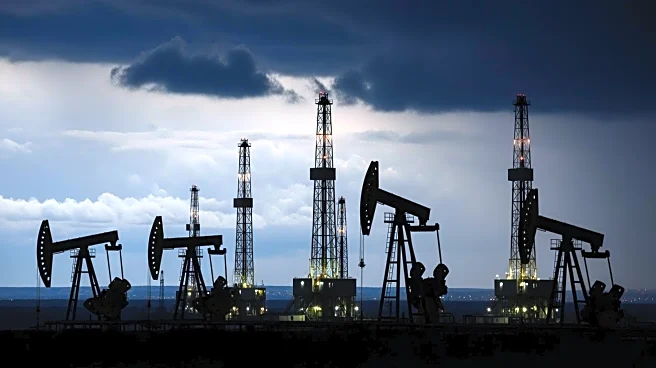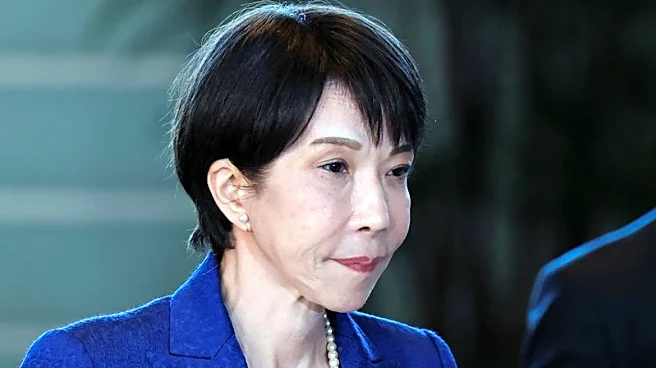What's Happening?
The UK government has announced new sanctions targeting Russia's largest oil companies, Lukoil and Rosneft, as part of efforts to undermine Russia's ability to fund its military operations in Ukraine.
These sanctions aim to cut off Russian oil from global markets, impacting the country's economy significantly. The UK is also targeting companies in third countries, such as India and China, that facilitate Russian oil exports. Additionally, 44 tankers in Russia's 'shadow fleet' are being sanctioned. The move is part of a broader strategy to pressure Russia and support Ukraine, with the UK joining other nations in considering further financial measures against Russian assets.
Why It's Important?
The sanctions on Russian oil companies are a strategic effort to weaken Russia's economic foundation, which is heavily reliant on oil exports. By restricting access to global markets, the UK aims to diminish Russia's financial capacity to sustain its military activities in Ukraine. This action could lead to increased oil prices and affect global energy markets, impacting countries dependent on Russian oil. The sanctions also reflect international solidarity with Ukraine, as Western nations seek to isolate Russia economically and politically. The move underscores the geopolitical significance of energy resources in global conflicts.
What's Next?
The UK and its allies may continue to expand sanctions, targeting additional sectors of the Russian economy. The G7 is considering plans to seize Russian assets, which could further strain Russia's financial resources. The European Union is also exploring legal avenues to support these measures. As the sanctions take effect, Russia may seek alternative markets or strategies to mitigate economic losses. The international community will likely monitor the impact on global oil supply and prices, with potential adjustments in energy policies and trade agreements.
Beyond the Headlines
The sanctions highlight the ethical and legal challenges of using economic measures in geopolitical conflicts. They raise questions about the effectiveness of sanctions in achieving political goals and the potential humanitarian impact on ordinary citizens. The situation also emphasizes the role of energy resources in international diplomacy, as countries leverage economic tools to influence global affairs. The long-term implications may include shifts in energy alliances and increased investment in alternative energy sources.










